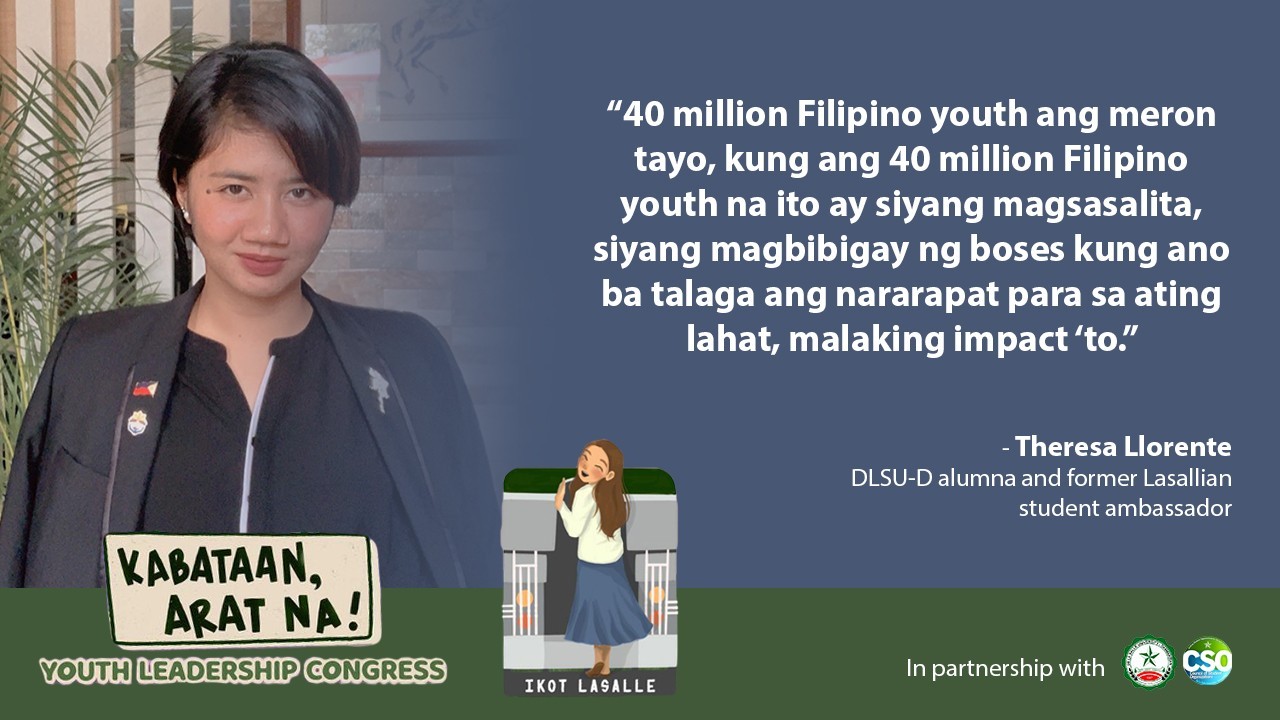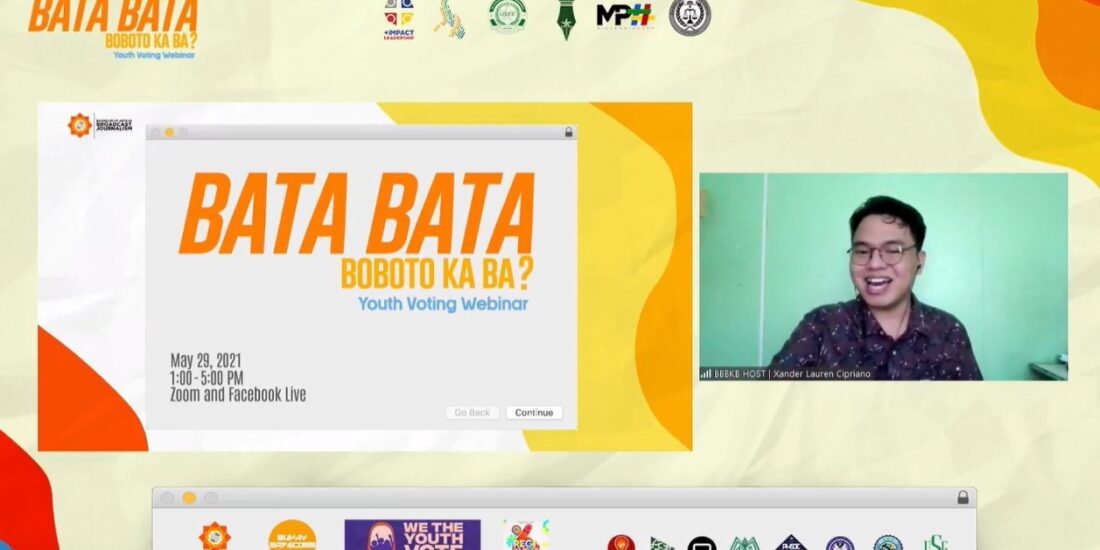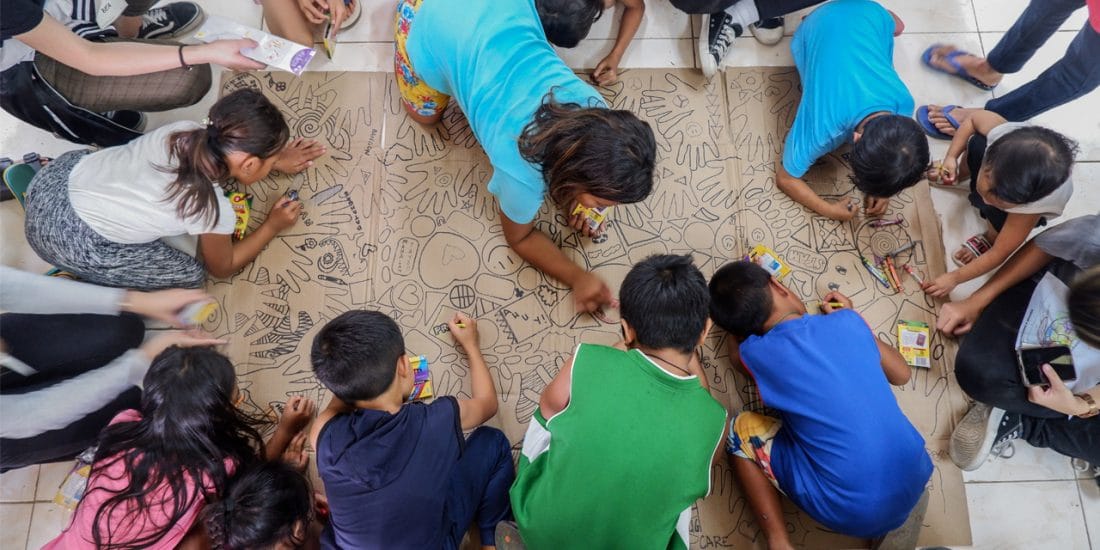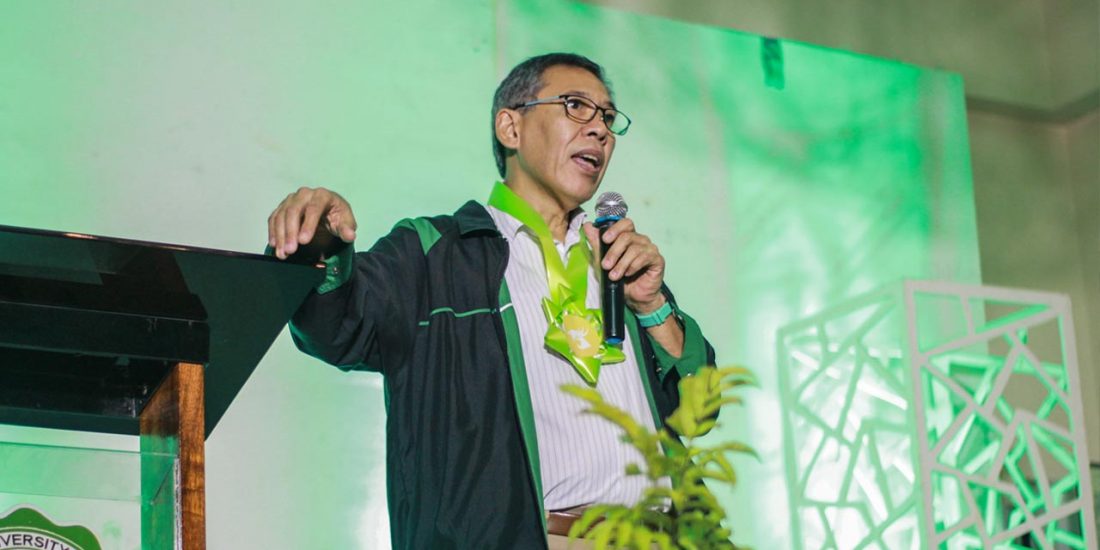What CSO-RSO’s youth congress Kabataan, Arat Na! teaches about effective leadership and youth participation
Headed by the Council for Student Organization (CSO) President Franchesca Paula Garcia, CSO and Recognized Student Organizations (RSO) hosted KABATAAN, ARAT NA! Youth Leadership Congress on April 23, from 3:00 PM to 7:00 PM, via and Facebook Live and Zoom Meetings. With seven honorable guest speakers, the event aimed to educate Lasallians on effective leadership, community mobilization, and community involvement amid distance learning and the coronavirus disease 2019 (COVID-19) pandemic.
Youth as a catalyst of change
Citing the role of youth in sparking meaningful change, DLSU-D alumna and former Lasallian student ambassador Theresa Llorente started with an insightful discussion about youth involvement and participation within the community through active citizenship, and how change can start within one’s self.
To emphasize her point, Llorente encouraged the youth to register for the upcoming 2022 Presidential Elections, noting how the youth could turn the tides of votes with their voice. “40 million Filipino youth ang meron tayo, kung ang 40 million Filipino youth na ito ay siyang magsasalita, siyang magbibigay ng boses kung ano ba talaga ang nararapat para sa ating lahat, malaking impact ‘to.”
On a similar note, Norby Roque Salonga, the Chair of Lasallian Social Enterprise for Economic Development (LSEED) shared his take on how the youth can spearhead change. Focusing on sustainable development for the future, he expounded the idea of localizing the Sustainable Development Goals (SDG) to meet the needs of the present in our own communities, without compromising the generations that would come after.
“Gone are those days when our only solution for malnutrition is feeding programs,” Salonga said. “Gone are those days when our only solution to access public health care is the medical mission. If those solutions are that effective, why do we have to face the same problems?”
He also added that the youth can take part in localizing sustainable development through balancing the triple bottom lines: people, planet, and profit. Furthermore, Salonga suggested inclusive participation in environmental sustainability, addressing social problems, and creating economic opportunities for marginalized communities.
On the topic of youth participation, former University Student Government (USG) President John Neil Manguerra followed by discussing the roles of student leaders, especially as representatives of the student body.
“You can’t underestimate the students’ initiative,” Manguerra said. He then tackled different policies during his term as the USG President in supporting and establishing a Lasallian esports community.
Manguerra has the ability to listen, observe, and assess the problems and needs of the student body, mentioning that the purpose of a student government is “to bridge the gap between the student body and University administration.”
The journey towards change
In line with youth engagement and mobilization, Chief Youth Mobilizer at Positive Youth Development Network John Carlo Borja likened the journey of student leaders to that of a jeepney ride. He raised six questions that every student leader should ask when boarding this metaphorical jeepney towards change: one, Saan ka nanggaling? (Where did you come from?), two, Ano’ng mga dalahin mo? (What will you bring?), three, Paano ako makakatulong? (How can I help?), four, Magkano ang dapat mong ibayad? (How much should you pay?), five, Kailan ka makakakuha ng change? (When will you get the change?), and six, Kailan ka titigil? (When will you stop?).
He also stressed that student leaders could collectively contribute to the community through organizing and mobilizing like-minded individuals with the same passion and heart for service.
“No amount of help is ever too small to not create a ripple effect of positive change,” Borja or “Kuya Borj” mentioned. He stressed that student leaders can collectively contribute to the community through organizing and mobilizing like-minded individuals with the same passion and heart for service, imparting that “kapag mas maayos na ang Pilipinas, sabay-sabay tayong papara.”
Meanwhile, Arizza Ann Nocum, the President of KRIS Library, empowered youth through her educational noble projects on her journey as a student leader. KRIS Library is a non-profit organization devoted to making education more accessible to Filipino children living in poverty and conflict. Nocum shared how she involved herself in different projects such as building libraries, providing scholarships, and donating books and school supplies to young Filipino people. With the support of the European Commission and the Kofi Annan Foundation, Nocum has embarked on nationwide programs to prevent violent extremism.
The bumps towards a better future
Tackling how youth leaders can provide a comfortable space for everyone to speak up, CSO President Franchesca Paula Garcia also shared her experiences on struggles, fears, and failures against passivity as a student leader.
“The beauty about failure is that we can try,” Garcia said. She also added that through failures, we can discover where we can improve and be better, “unlike doon sa pagiging passive natin, it’s not good kasi ‘di ka nagta-try.”
On the other hand, Mark Jayson Espinosa, Senior Program Education Specialist of the Department of Education (DepEd) Dasmariñas, divided the concept of quality education within leadership into two phrases: us being students or us being leaders. He pointed out some common challenges when it comes to balancing academics and the responsibilities of leadership, highlighting that student leader is a word that cannot be interchanged, as being a student always comes first.
“Maraming pwedeng mangyari, (but) you still have to be open to possibilities,” Nocum pointed out. She added that “Into [sic, In the] journey of [sic, to] personal excellence, sometimes it’s more important to learn through mistakes than success.”
***
Encouraging youth participation and involvement in the community, the heart of Youth Leadership Congress lies in the youth’s role in making significant changes. It starts with stepping up little by little towards a better future, whereas quoted by Dr. Jose Rizal, “Ang kabataan ang pag-asa ng bayan.”





